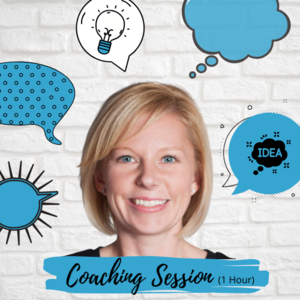If your middle school years were anything like mine, the cafeteria was a dangerous place. Where to sit? What to say? And just when you thought you figured it all out, everything changed.
Entering the writing world gave me a déjà vu of walking back into the middle school lunchroom. Even if I knew the names of the people at the tables, they definitely didn’t know mine. Worse than that, we didn’t even seem to speak the same language.

Today I want to offer you six rookie mistakes to quit making as you enter that writing lunchroom. Are you ready to move up and sit with the big kids? Good, because here we go.
1. Stop talking about the length of your manuscript in pages.
In the publishing industry, length is measured and discussed in word count. Also, you should know there are guidelines for how long each type of book, genre, and age level text should be. Yes, there are exceptions, but as a newbie, you should stick to these highly recommended suggestions.
2. Publishers, agents, and editors use Microsoft Word.
Do not send anyone a Google Doc. Yes, I use Google personally and within my academic professional life, but when it comes to writing, you should ALWAYS use Microsoft Word.
3. Create and use an email address that is your name. first.last@email.com .
As cute and clever as WriterGirl83@yahoo.com is, it isn’t professional. That moniker also doesn’t help people remember your name, which is the ultimate goal. Email addresses are free. Get one that presents you as a professional.
4. In the traditional publishing world, authors do not find their own illustrators.
The publishers do. Asking how to find pictures or an illustrator for your book instantly labels you as a rookie. Don’t bother.
5. Don’t use any title other than writer.
Avoid “pre-published author” or “aspiring author.” You write. You are a writer. Leave it at that. Once you are published you can switch your title to “author.”
6. You don’t need to copyright your work before submitting to agents and publishers.
Again, asking about it makes you stand out like a newbie. Just don’t.
Follow these suggestions and you’ll take a few steps forward in your authorpreneur education. Continue to educate yourself through blog posts, podcasts, courses, and eventually, when we are allowed to gather in groups to discuss nerdy things together again . . . conferences.
Be brave. Ask questions.
There are many writerly groups and people that are very kind and will be happy to show you the ropes. SCBWI, for children’s writer and illustrators, is one of the best. If you find yourself in a snobby/snarky/cocky/condescending writing circle, consider finding new mentors who will guide you kindly. Maybe your town has a writing club, or your community college has great offerings. Check them out. Attend a retreat. If you are feeling brave, sit at the table with the cool kids and just listen for a bit.
BIO: This article was originally published on Amanda Zieba’s blog where she shares word nerd goodness each and every Wednesday. She is also the author of 11 books and creator of the Take Action Author Plan course. Subscribe to her email list and grab your free writing prompt PDF.

Leave a Reply